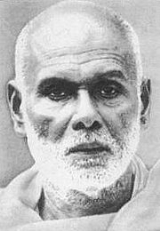
Billava
Overview
Hindu
Hindu refers to an identity associated with the philosophical, religious and cultural systems that are indigenous to the Indian subcontinent. As used in the Constitution of India, the word "Hindu" is also attributed to all persons professing any Indian religion...
communities of the Tulu
Tuluva
The Tuluva -Geographic Distribution :Though most of the Tuluva population is found in the Tulu Nadu region, migrant poplulations are found the world over. In recent times, the first period of migration started at the beginning of the 20th century to places such as Mumbai and Chennai and other...
ethnic group in India. They are also found in the Kannada-speaking Kundapura
Kundapura
-Languages and culture :The town mainly consists of Kannadigas who speak Kundagannada, Konkanis and Tuluvas. The Goud Saraswat Brahmins who fled Goa during the Portuguese arrival in the 16th century arrived by Boat in Basrur and some settled in Kundapura and surrounding villages. These people and...
region of Karnataka
Karnataka
Karnataka , the land of the Kannadigas, is a state in South West India. It was created on 1 November 1956, with the passing of the States Reorganisation Act and this day is annually celebrated as Karnataka Rajyotsava...
and some parts of Kerala
Kerala
or Keralam is an Indian state located on the Malabar coast of south-west India. It was created on 1 November 1956 by the States Reorganisation Act by combining various Malayalam speaking regions....
, including Kasaragod district
Kasaragod district
Kasaragod District is one of the districts of the Indian state of Kerala. Kasaragod District was organised as a separate district on 24 May 1984...
. The Billava were primarily engaged in martial arts (garadi) and practised Ayurveda
Ayurveda
Ayurveda or ayurvedic medicine is a system of traditional medicine native to India and a form of alternative medicine. In Sanskrit, words , meaning "longevity", and , meaning "knowledge" or "science". The earliest literature on Indian medical practice appeared during the Vedic period in India,...
; the community was reformed under Narayana Guru
Narayana Guru
Sri Nārāyana Guru , also known as Sree Nārāyana Guru Swami, was a Hindu saint, sadhuand social reformer of India. The Guru was born into an Ezhava family, in an era when people from backward communities like the Ezhavas faced much social injustices in the caste-ridden Kerala society...
's teachings.
It is believed that billava and ilava are derived from a proto-Dravidian word, variations of villavar "archers" – a warrior caste of the Dravidians who ruled most of India in ancient times.

